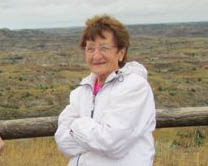My greatest fear is sleepwalking through my life – finding out at the end of it that I’ve made some ridiculous miscalculation and wasted a great gift. So it seemed like a smart idea to read “Never Say Die: The Myth and Marketing of the New Old Age” by Susan Jacoby. Bill Moyers, who I respect, had vouched for her.
The premise of “Never…” is that we Boomers are in denial about the fact that we will get old and die. If we were more realistic, we’d enjoy our lives more, feel more empowered, and save a lot of money on snake oil. She says it’s cool to see portrayals of 90-year-olds mountain-biking and skydiving, but it’s not realistic, and if we accepted what is really going to happen to us, we might be better prepared.
I liked the idea. I want to be prepared and use every ounce of my life to the best of my ability, so I read the book. I finished the book. And I have never been so depressed.
If you ever thought you might age and die gracefully, expect Jacoby to bludgeon your expectations with fact, figures, historical stats and anecdotes. She even clucks away the idea of old people becoming “wise” in exchange for our old age, asking why we would suddenly become wise if we’ve been average to stupid all our lives?
I kept reading, thinking that Jacoby would eventually get to the part where she distills all her negative findings into some kind of wisdom, some guide for gleaning the most from our lives in spite of all the reasons not to. The most she can muster is this concession to her nonfiction-writing friends, who urged her to end the book on an up-note:
“And that just about sums up my ‘positive advice’: live in a place that forces you to stay on your feet, and look for work wherever and whenever you can find it.”
At the end of this book I felt like stockpiling Vicodin. Possibly motivated by the tragic loss of her longtime companion to Alzheimers’, Jacoby set out to prove to the rest of us that we have little reason to hope, and she did a good job of making her case.
However, I think the beauty of humanity is that, faced with the knowledge of insurmountable odds, we still fling ourselves heroically against the dark unknown, choosing to believe that somehow, in some small way, we might triumph. Even if, as in this case, we know we will lose the final battle, we nevertheless choose to find meaning in the prosecution of this very personal war.








 My big sister and I sometimes smile that refrain to each other when we see a particular example of self-indulgence or nit-pickiness. The subtext is, Who has time for such foolishness?
My big sister and I sometimes smile that refrain to each other when we see a particular example of self-indulgence or nit-pickiness. The subtext is, Who has time for such foolishness?






Recent Comments